A SpiceJet aircraft caught fire at Indira Gandhi International Airport (DEL) in Delhi on July 25 while undergoing engine maintenance. During a ground run at idle power at bay, an aircraft maintenance engineer noticed a fire in one of the engines of the Bombardier Q400 aircraft. This resulted in a fire extinguisher being discharged and firefighters being called to the scene.
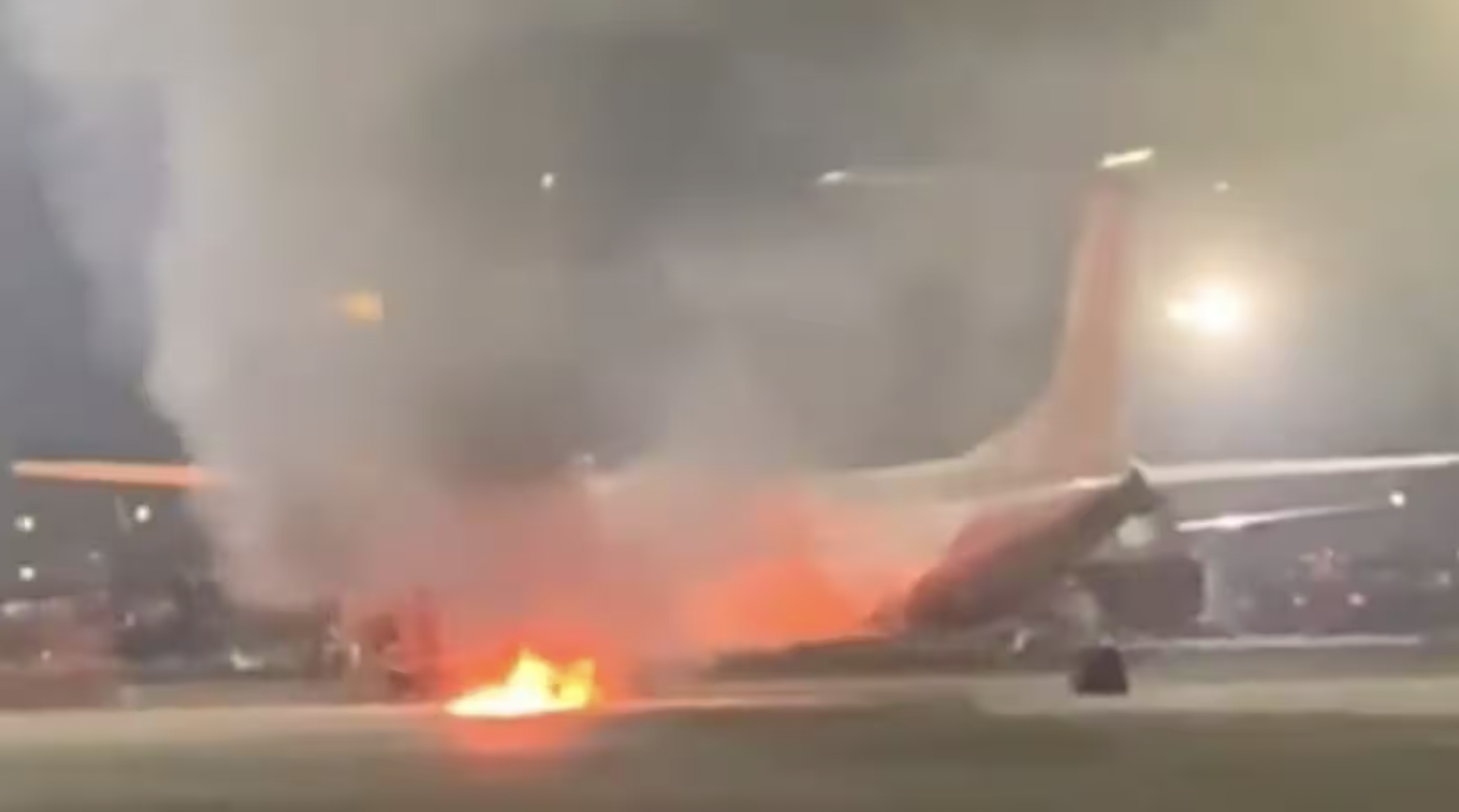
A passenger aboard another aircraft on the taxiway took a video of the fire and shared it on social media. According to the video, thick smoke emanated into the air from the aircraft. This was parked far from the aircraft on the taxiway.
SpiceJet Q400 engine catches fire while carrying out a ground run at Delhi Airport. pic.twitter.com/I2DaZKpzUu
— Breaking Aviation News & Videos (@aviationbrk) July 25, 2023
After the incident, a SpiceJet representative confirmed that the fire was quickly extinguished on one of the Q400 aircraft's engines. Bombardier Q400 turboprop aircraft can accommodate between 78 and 90 passengers according to the airline.
The aircraft is completely safe and no one was injured during the fire. The incident occurred only a few hours after India's Directorate General of Civil Aviation (DGCA) removed SpiceJet from enhanced surveillance.
The airline was placed under surveillance due to a variety of safety issues. In October 2022, the airline received a temporary 50% cap on the number of flights it could operate after multiple accidents occurred.
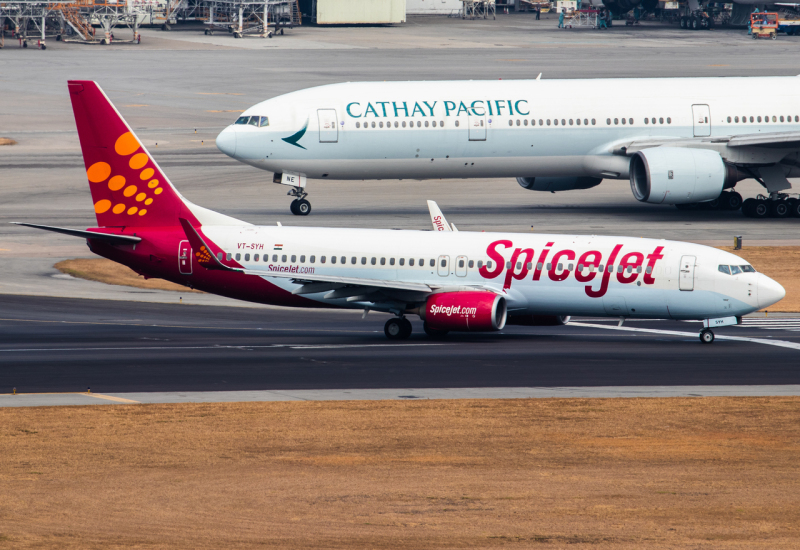
Many SpiceJet plane incidents happened between April and July 2022 due to technical glitches during flights. The DGCA responded to this by placing SpiceJet under enhanced surveillance on July 27, 2022.
The DGCA said the following about the airline's removal earlier in the day: "In view of observations made in the past concerning inadequate maintenance and in view of the incidents during the monsoon season last year, SpiceJet was placed under enhanced surveillance by DGCA. Accordingly, 51 spot checks were conducted across 11 locations pan India, on the Boeing 737 and Bombardier DHC Q-400 fleet of aircraft, wherein 23 aircraft were inspected and 95 observations were made by the DCGA teams. The findings were of routine nature and were not considered significant by the DCGA. Suitable maintenance action was taken by the airline to address the findings in accordance with DGCA guidelines. As a consequence, SpiceJet has been taken off the enhanced surveillance regime."
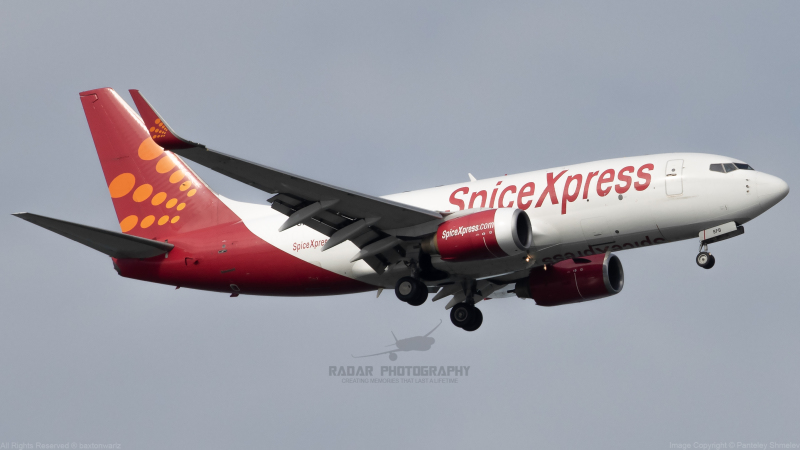
The decision to remove SpiceJet from enhanced surveillance was made after the DCGA inspected 23 aircraft. The inspection involved making 95 observations and conducting 51 spot checks of SpiceJet's aircraft across 11 locations in India. The DCGA concluded that SpiceJet met maintenance requirements and operations were safe enough to return to normal flying.
Another reason for SpiceJet's enhanced surveillance was financial issues. The airline had to pay its dues to various lessors who threatened to repossess their aircraft if the fees were not paid. SpiceJet acknowledged this and made some changes to avoid debt.
Ajay Singh, SpiceJet's top shareholder and managing director, said he would inject $61 million into the airline to help it return to full operations. The airline is looking to increase funding to restore operations after approximately 25% of its fleet was grounded. SpiceJet's fleet of 55 aircraft includes Boeing 737 and Bombardier Q400 planes.
Emirates Dismisses Viral A330 Plane Crash Video as "Fabricated and Untrue" » Could You Survive a Plane Crash? The Unlikely Science of Plane Crash Survival » Export Development Canada Secures Aircraft Repossession in Nigeria Under Cape Town Convention »
Comments (0)
Add Your Comment
SHARE
TAGS
NEWS SpiceJet Incident Dash 8 Q400 Fire FlamesRECENTLY PUBLISHED
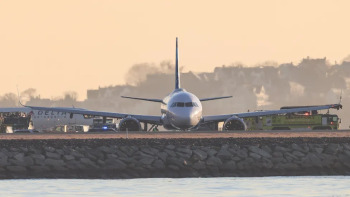 Could You Survive a Plane Crash? The Unlikely Science of Plane Crash Survival
With air travel consistently being heralded as the safest form of public transport, most of us do not board a plane pondering our chances of survival in the event of a crash. But, is it possible to survive one?
INFORMATIONAL
READ MORE »
Could You Survive a Plane Crash? The Unlikely Science of Plane Crash Survival
With air travel consistently being heralded as the safest form of public transport, most of us do not board a plane pondering our chances of survival in the event of a crash. But, is it possible to survive one?
INFORMATIONAL
READ MORE »
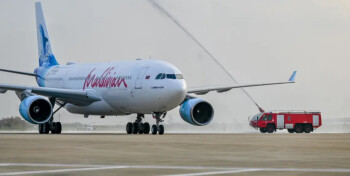 Maldivian Airlines Introduces First-Ever Widebody Aircraft, Plans New China Flights
Maldivian, the government-owned national airline of the Maldives, has just welcomed its first-ever wide body aircraft: the Airbus A330-200. With the new aircraft, the carrier also plans brand-new long haul international flights to China.
NEWS
READ MORE »
Maldivian Airlines Introduces First-Ever Widebody Aircraft, Plans New China Flights
Maldivian, the government-owned national airline of the Maldives, has just welcomed its first-ever wide body aircraft: the Airbus A330-200. With the new aircraft, the carrier also plans brand-new long haul international flights to China.
NEWS
READ MORE »
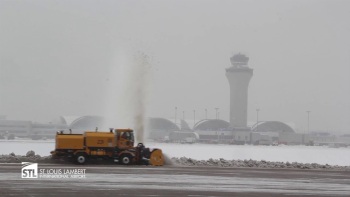 Thousands of Flights Impacted as Winter Storm Blair Hits U.S.
Winter Storm Blair has unleashed a huge blast of snow, ice, and freezing temperatures across the Central and Eastern United States.
As of Sunday afternoon, over 6,700 flights and counting have been disrupted. This includes cancelations and significant delays leaving passengers scrambling to change flights and adjust travel plans.
NEWS
READ MORE »
Thousands of Flights Impacted as Winter Storm Blair Hits U.S.
Winter Storm Blair has unleashed a huge blast of snow, ice, and freezing temperatures across the Central and Eastern United States.
As of Sunday afternoon, over 6,700 flights and counting have been disrupted. This includes cancelations and significant delays leaving passengers scrambling to change flights and adjust travel plans.
NEWS
READ MORE »





